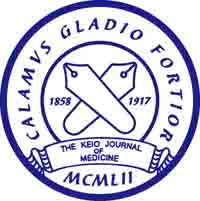<Title:> Age Group Differences in Daily Life Changes among Community Residents during the COVID-19 Pandemic: A Pilot Study on Intergenerational Comparison
<Author(s):> Natsuki Yamamoto-takiguchi, Eiko Uchiyama, Hiroki Fukahori, Atsuko Taguchi, Satoko Nagata
<Corresponding author E-Mill:> natsusfc(at)sfc.keio.ac.jp
<Abstract:> This study investigated lifestyle changes and the self-reported mental health status of Japanese community residents during the COVID-19 pandemic. Differences in demography, daily lifestyle changes, and approaches to problem solving were analyzed in two age cohorts (<60 vs 60 years). The prevalence of moderate/increased psychological distress was 31.7%, with no significant difference between the cohorts. Compared with the pre-COVID-19 era, more than 80% of the participants stopped eating out and spent more time at home, and more than 70% used public transport less frequently. There were significant differences between the cohorts for the time spent at home, opportunities to eat meals outside of home, and shopping in stores. Participants aged under 60 years were less likely to use television and newspapers or to consult a family doctor. Those aged over 60 years were less likely to consult friends/colleagues or to use the Internet/social networking services. Identifying the risk factors for psychological distress is warranted for implementing measures to maintain and improve the physical and mental health of residents.
<Keywords:> community care, community residents, COVID-19, intergenerational difference, public health
<URL:> https://www.jstage.jst.go.jp/article/kjm/advpub/0/advpub_2022-0007-OA/_html


![A Heart-shaped Sleeve Simplifies Intramedullary Tibial Nail Insertion when Using the Suprapatellar Approach [Published online in advanced , by J-STAGE]](http://kjm.pupu.jp/blog/wp-content/uploads/2017/07/2017-0001-OA-100x100.jpg)
![Dementia care and research – What a difference a decade makes? [Published online Keio J Med, 68, 68-68, by J-STAGE]](http://kjm.pupu.jp/blog/wp-content/uploads/2019/09/68-004-ABST-100x100.jpg)
![Regulatory T Cells: Pathophysiological Roles and Clinical Applications [Published online in advanced , by J-STAGE]](http://kjm.pupu.jp/blog/wp-content/uploads/2019/07/2019-0003-OA-100x100.jpg)
![Dynamic Role of the GTP Energy Metabolism in Cancers [Published online Keio J Med, 65, 21-21, by J-STAGE]](http://kjm.pupu.jp/blog/wp-content/uploads/2016/03/65-001-ABST-100x100.jpg)
![Headache Caused by Brain Metastases of Castration-resistant Prostate Cancer during Cabazitaxel Therapy [Published online Keio J Med, 66, 65-71, by J-STAGE]](http://kjm.pupu.jp/blog/wp-content/uploads/2017/12/2016-0014-CR-100x100.jpg)
![Poorly Differentiated Carcinoma with only Clear Glandular Differentiation Arising from the Bladder Trigone: A Case of Adenocarcinoma or Urothelial Carcinoma? [Published online Keio J Med, 74, 113-118, by J-STAGE]](http://kjm.pupu.jp/blog/wp-content/uploads/2025/06/2024-0017-CR-100x100.jpg)
![Discovery of IL-6 and Development of Anti-IL-6R Antibody [Published online Keio J Med, 68, 96-96, by J-STAGE]](http://kjm.pupu.jp/blog/wp-content/uploads/2019/12/68-007-ABST-100x100.jpg)
![Efficacy of Cognitive Stimulation Therapy for Cognition in Patients with Vascular Cognitive Impairment: A Pilot Randomized Controlled Trial [Published online in advanced , by J-STAGE]](http://kjm.pupu.jp/blog/wp-content/uploads/2024/08/2022-0030-OA-100x100.jpg)
![Paradigm Shifts in Nutrition Therapy for Type 2 Diabetes [Published online Keio J Med, 66, 33-43, by J-STAGE]](http://kjm.pupu.jp/blog/wp-content/uploads/2017/09/2016-0016-IR-100x100.jpg)
![<i>In Vivo</i> Intestinal Research Using Organoid Transplantation [Published online Keio J Med, 71, 73-81, by J-STAGE]](http://kjm.pupu.jp/blog/wp-content/uploads/2022/12/2022-0019-IR-100x100.jpg)